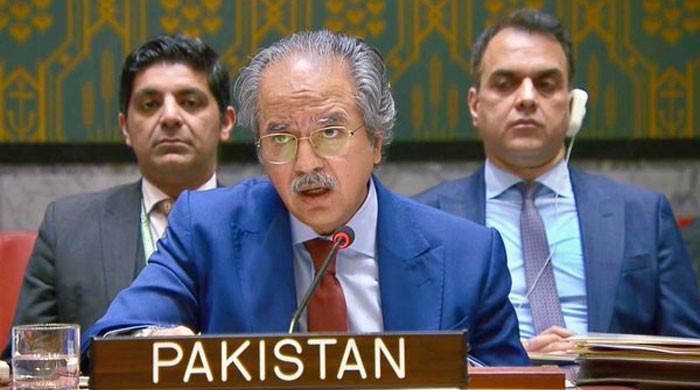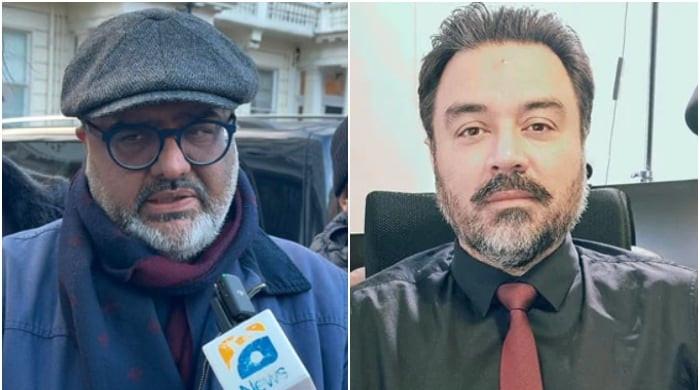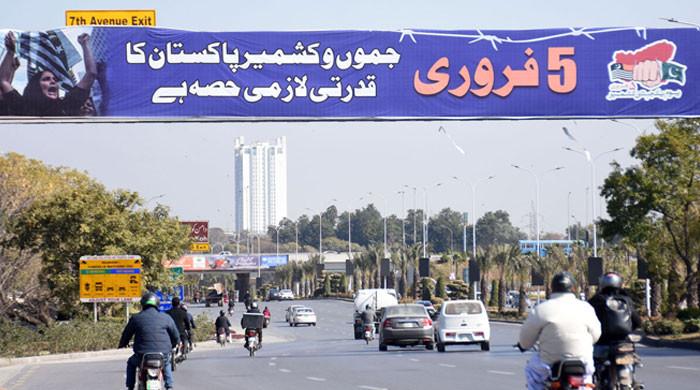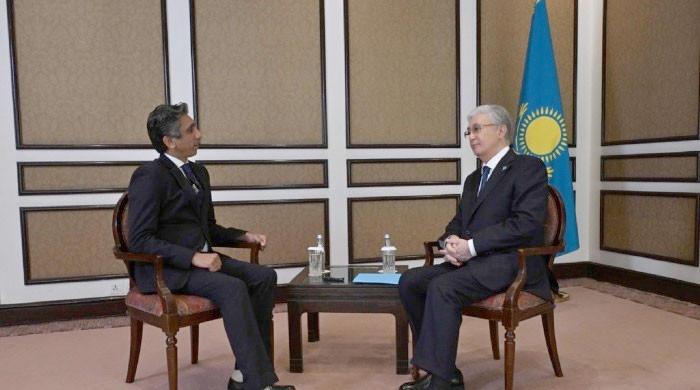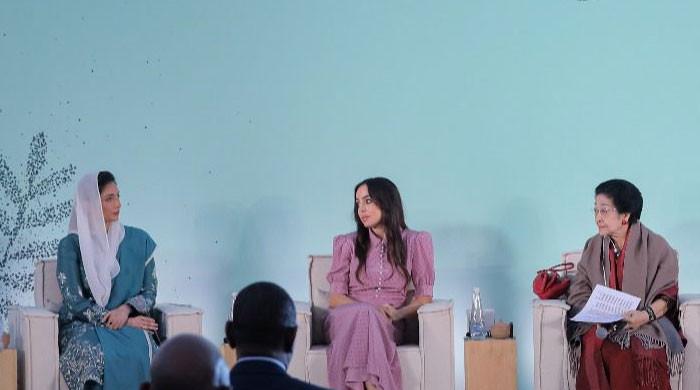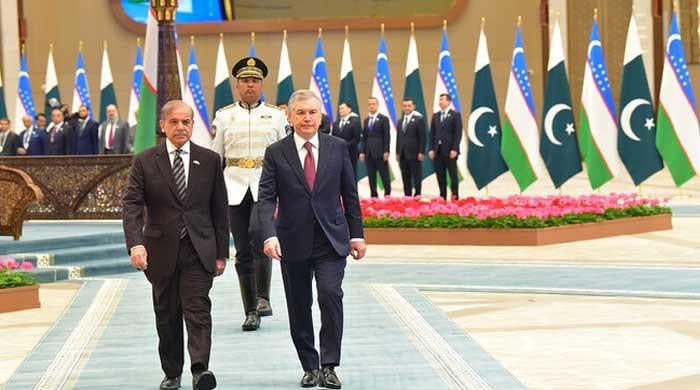Supreme Court suspends IHC order barring Justice Jahangiri from judicial work
Apex court issues notices to relevant parties; IHC judge challenges cancellation of his LLB degree by UoK in SHC
September 29, 2025
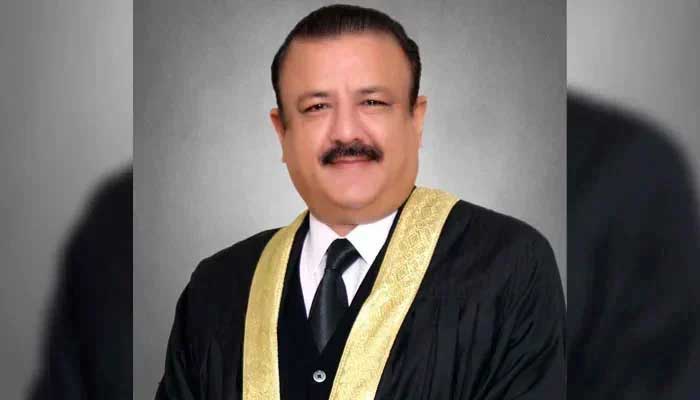
- Five-member constitutional bench hears Justice Jahangiri's appeal.
- UoK cancels IHC judge's LLB degree over using unfair means.
- IHC had stopped Justice Jahangiri from work till SJC's decision.
ISLAMABAD: The Supreme Court on Monday suspended the Islamabad High Court (IHC) order barring Justice Tariq Mehmood Jahangiri from judicial work.
The apex court issued notices to relevant parties, including office of the attorney general of Pakistan, and adjourned the case hearing till tomorrow.
The decision was announced by a five-member constitutional bench, headed by Justice Amin-ud-Din Khan, on an appeal filed by Justice Jahangiri challenging the IHC's September 16 order.
Other members of the bench included Justice Jamal Khan Mandokhail, Justice Muhammad Ali Mazhar, Justice Syed Hasan Azhar Rizvi, and Justice Shahid Bilal Hassan.
The development comes after a two-member bench of the IHC, led by Chief Justice (CJ) Sardar Muhammad Sarfraz Dogar and comprising Justice Mohammad Azam Khan, restrained Justice Jahangiri from performing judicial duties until the Supreme Judicial Council's (SJC) decision on a petition pending against him. The petition was filed by lawyer Mian Dawood.
Following the verdict, five IHC judges, including Justice Jahangiri, separately approached the SC against the divisional bench's order.
The four other judges were Justice Mohsin Akhtar Kiyani, Justice Babar Sattar, Justice Saman Rifat and Justice Ejaz Ishaq Khan.
The case centres on a controversy regarding Justice Jahangiri's LLB degree, which was cancelled last week by the University of Karachi.
According to the university’s notification dated September 25, the university syndicate, in its meeting on August 31, 2024, approved "Resolution No 06" in compliance with the competent authority’s decision, upholding the recommendation of the Unfair Means Committee (UFM).
The notification stated, "Justice Jahangiri was found guilty of using unfair means and has been barred for three years from admission to any university or college, as well as from appearing in any university examination."
Furthermore, the University of Karachi clarified that Justice Jahangiri had never been enrolled as a student at Islamia Law College, Karachi, in 1989.
Degree cancellation challenged
Meanwhile, Justice Jahangiri has also challenged the cancellation of his LLB degree by the University of Karachi (UoK) Syndicate and its Unfair Means Committee in the Sindh High Court (SHC).
In his plea, the IHC judge seeks that his petition filed under Article 199(1)(a)(ii) be fixed before a regular bench of the high court.
Noting that all objections will be answered during the hearing, the plea argues that the decisions of the UoK Syndicate and Unfair Means Committee were beyond the scope of authority illegal.
"Decision of UoK Syndicate Agenda and Unfair Means Committee should be declared null and void," the plea reads.
It further contends that under the UoK Act, the Syndicate was not authorised to cancel the degree after its issuance, and it could only be done by a civil court.
Earlier, the SHC had dismissed similar petitions concerning the judge's degree on grounds of non-prosecution, despite objections raised by the defence counsel.
The counsel in the case questioned the legality of the bench’s decision to assign the hearing to itself from another constitutional bench, which had originally scheduled the petitions for hearing on September 30. In protest, the lawyers boycotted the proceedings after the bench refused to recuse itself.
The bench stated that both judges agreed there were no valid grounds for recusal, adding that any issues regarding maintainability must be addressed first.
Additionally, the SHC bench rejected the petitioners’ counsel’s argument that these petitions should be heard by a regular SHC bench, noting that the constitutional bench was the appropriate forum given the nature of the relief sought.




